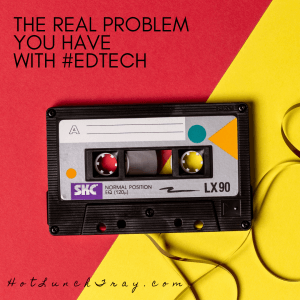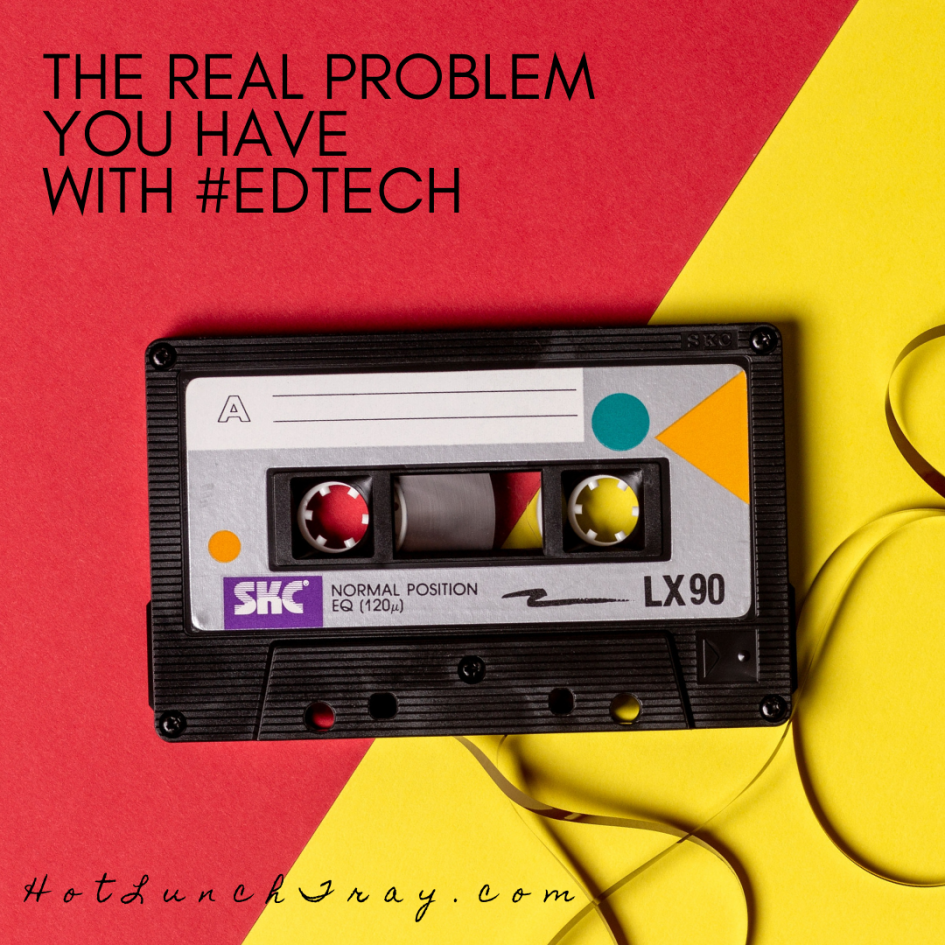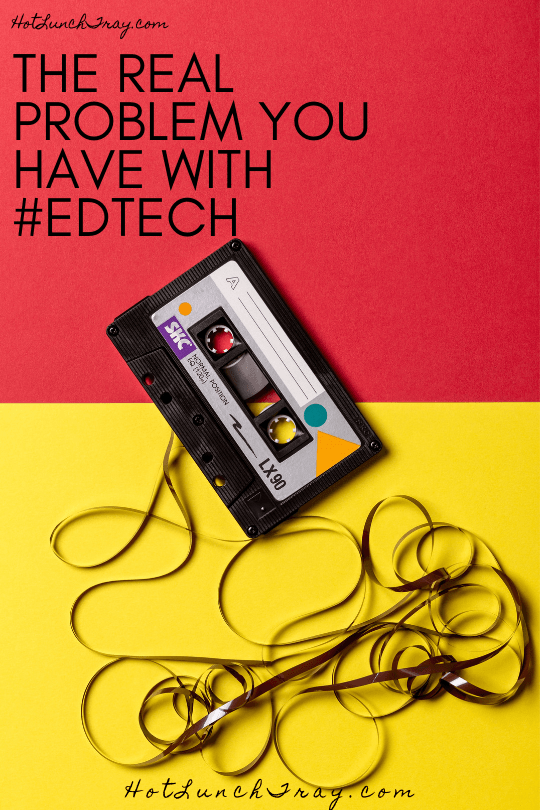Well, maybe not “you,” but the real problem that someone-you-know has with educational technology…
Resilience
You are not always able to spring back quickly from a difficult #edtech challenge. The unplanned can stop you in your tracks and you are not yet able to comfortably improvise.
It is important to remember you are the adult and everything you do is modeling for your students. Instead of reacting with anger or frustration on the outside try talking through your emotions and include rational talk about how to accomplish what you hoped to accomplish in a different manner. While your students may not encounter projector or scanner problems if their teacher models how to think through problems they may pick up the habit.
Grit
You may not have the ability to stick with a project long term #edtech project. You still have to connect with the passion to overcome firewall surprises, devices issues, and work with students to solve those issues which pop up over a long term project.
When things get hard it is tempting to roll back to what has been successful in the past. However, if you think about your students and want your content to be relevant to those students, honestly consider the best way to deliver that content. Sometimes the best way to deliver and allow them to participate is via #edtech. Not every time, but do not let your nascent confidence with #edtech limit your students from optimal learning experiences. If you find yourself taking the easier path instead of the better path enlist the help of your media specialist, your coach, your teammate.
Change
You, or someone you know, may be resistant to change. Education used to be a profession you grew up in and repeated that similar experience for the next thirty years of employment as a teacher. However, that has changed drastically.
Accepting the change in the way the world learns is the first step. When you need to know how to fix your washing machine do you call a repairman or do you check YouTube first in case it is an easy fix? Most of the world learn things online, that includes your students. That new version of the hottest video game? Your students learned about it on YouTube. First, accept this change and help your students understand how to receive online learning and knowledge in a healthy manner. Your media specialist or technology coach can help with digital citizenship content to help your students (and you) spot dubious sources online, properly give credit to online resources, and use strategies to stay safe while online interacting with a larger group of people than ever before.
And while that is a big transition, consider that your students have already moved past that. Your students are creating content already. Are you?
After accepting the change in the way to world learns, also consider that new purposes exist for the current students than did for past generations. Global audiences are waiting for content. If we can lead our student to productive contribute, mind their digital footprints, and add to the existing content is a productive, constructive way we can create change with our students and our content.
Because #edtech is more about how you pursue and handle learning in a dynamic world than what the latest gadget is or what this button does. It is how you interact with the current technology and model a positive outlook toward learning more about it.
Reflect about yourself, or that someone-you-know, and consider the difference between reflecting on any #edtech activity and beginning any #edtech activity. Do you fear the unknown or the learning which is about to take place? Consider your natural allies in this endeavor: media specialist, instructional/technology coaches, teammates. You don’t have to be perfect, you just need some support and a five-minute head start – and that has always been how teachers operated.







2019-10-28 at 9:31 pm
Interesting article I hadn’t really thought about edtech. Teaching now has changed a lot from what it was even 10 years ago.
2019-10-31 at 2:17 pm
Great blog post!
2019-11-10 at 4:44 am
I had trouble with change, huge ones. But I got used to it. Takes a while though
Dean recently posted…MUN Right of Reply – Procedure and Strategy